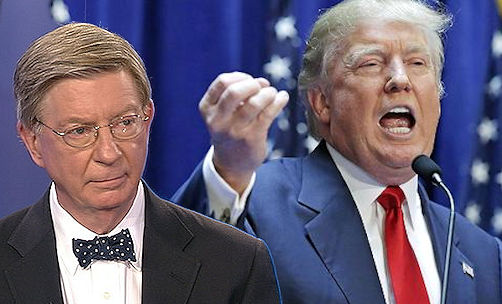Carson Holloway has another great article posted over at Public Discourse. This excerpt, from over half-way through it, gives a flavor of the piece, but you’re missing out if you don’t click over and read the entire thing.
Conservatives’ Moral Bankruptcy
Trump’s candidacy is also useful to the extent that is has brought to light another very important phenomenon, one perhaps related to the first: the moral bankrupcty of a certain kind of contemporary intellectual conservatism. His electoral star might burn out, as his rivals hope, but for the time being, it sheds light on the inadequacies of not only conservatism’s men of action but also its men of reflection.
We encounter such a morally vacuous conservatism in the recent remarks of George Will, one of America’s most celebrated conservative commentators and one of Trump’s most vigorous critics. Reacting to Trump’s economic nationalism, Will declares that Republicans must be “the party of growth, or they are superfluous.” Democrats, he suggests, exist to redistribute wealth—“allocating scarcities” through the “administrative state.” In contrast, Republicans should avoid such thinking and instead simply focus on growing the nation’s economy.
In Will’s view, apparently, the Republican Party should have no domestic policy agenda beyond an economic one, and that agenda should involve nothing beyond promoting economic growth. This, surely, is the import of his use of the word “superfluous,” which implies that in the absence of an economic growth platform there would be no important difference between the Republicans and Democrats. This in turn is as much as to say that the only real political issues are economic issues.
Will’s vision is utterly unworthy of a great political party and wholly inadequate to the politics of America or any other nation. It is a vision on the basis of which no party could successfully govern or even win elections in order to get the chance to govern. The basic purposes of a political party are to win power and then use that power with a view to the common good. A party that followed Will’s advice would be able to do neither.
Read more: Public Discourse
Image credit: rabidrepublicanblog.com.

